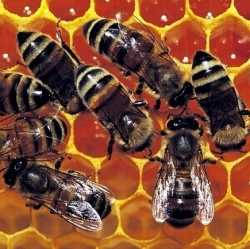
The study, published in the journal Nature, should settle years of debate on how the brain perceives taste. The team showed the separate taste sensors on the tongue had a matching partner in the brain. The scientists hope the findings could be used to help reverse the loss of taste sensation in the elderly. It is a myth that you taste sweet only on the tip of the tongue.
Each of the roughly 8,000 taste buds scattered over the tongue is capable of sensing the full suite of tastes. But specialised cells within the taste bud are tuned to either salty, bitter, sour, sweet or umami tastes. When they detect the signal, a message is sent to the brain. Although how the brain deals with the information has been up for discussion. A team at Columbia University engineered mice so that their taste neurons would fluoresce when they were activated. They then trained their endoscopes on the neurons deep at their base of the brain.
The animals were fed chemicals to trigger either a salty, bitter, sour, sweet or umami response on the tongue and the researchers monitored the change in the brain. They found a "hard wired" connection between tongue and brain.
